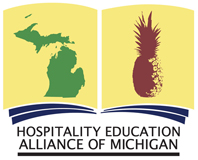Start Date
2012 12:00 AM
Description
Hospitality and Tourism Management curricula aligned with the knowledge, skills and abilities (KSAs) necessary for success will properly prepare students to meet industry expectations. Hospitality and tourism programs are increasing in number and popularity, with degrees offered by two-year and four-year colleges, as part of business schools, and as stand-alone programs. Many programs have a similar core curriculum with courses in business management, accounting, finance, human resource management, hospitality law, information technology, and marketing. Some programs allow specialization in one of the traditional areas of hospitality such as food and beverage, lodging, tourism, recreation, or event management. In addition, an internship is often required.
Due to the broad scope of positions open to hospitality students upon graduation, it is difficult to determine which KSAs are important to all or most graduates, and how these KSAs differ from those taught in traditional business programs. Moreover, the teaching of some core areas, such as information technology, is problematic due to rapid advances in the field, non-standardization of the technology and the high cost of software (Mandabach, VanLeeuwen, & Bloomquist, 2001). Soft topics, such as teamwork, listening skills, verbal and written communication skills, and professionalism are often given short shrift in curriculum development but are given high rankings of importance by both recent graduates and upper level managers (Tesone & Ricci, 2006).
Identifying Gaps in Curriculum with the Identified Knowledge, Skills and Abilities Important to Hospitality and Tourism Management Graduates
Hospitality and Tourism Management curricula aligned with the knowledge, skills and abilities (KSAs) necessary for success will properly prepare students to meet industry expectations. Hospitality and tourism programs are increasing in number and popularity, with degrees offered by two-year and four-year colleges, as part of business schools, and as stand-alone programs. Many programs have a similar core curriculum with courses in business management, accounting, finance, human resource management, hospitality law, information technology, and marketing. Some programs allow specialization in one of the traditional areas of hospitality such as food and beverage, lodging, tourism, recreation, or event management. In addition, an internship is often required.
Due to the broad scope of positions open to hospitality students upon graduation, it is difficult to determine which KSAs are important to all or most graduates, and how these KSAs differ from those taught in traditional business programs. Moreover, the teaching of some core areas, such as information technology, is problematic due to rapid advances in the field, non-standardization of the technology and the high cost of software (Mandabach, VanLeeuwen, & Bloomquist, 2001). Soft topics, such as teamwork, listening skills, verbal and written communication skills, and professionalism are often given short shrift in curriculum development but are given high rankings of importance by both recent graduates and upper level managers (Tesone & Ricci, 2006).
